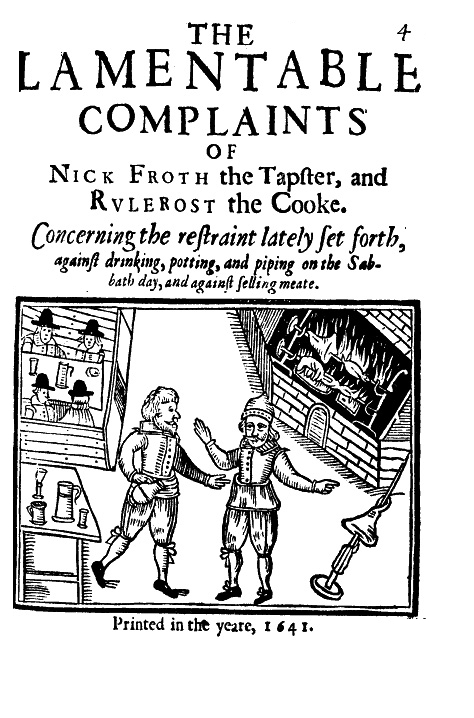Liberty Matters
The Influence of the Levellers

I have been rethinking the fundamental question of whether we owe any key terms or categories in our political language to the Levellers. I am (as you would suspect from my first contribution to this debate, which stressed how limited their influence has been) tempted to argue that we don't. Take popular sovereignty:to be pedantic, they used the term people's sovereignty; the difference is significant because the populace is a mob of individuals, while the people has a collective identity. We shouldn't be surprised to discover that it is their opponents who used the term popular sovereignty, or to find in a translation of Martial from 1656 the phrase that many-headed Beast Popular Sovereignty. The Levellers seem to have originated the phrase the people's sovereignty, but not the (related) concept popular sovereignty: the phrase the sovereignty of the people is to be found in a translation of Bodin, while Hobbes wrote of the sovereign people of Athens.
But perhaps we do owe something, and something important, to the Levellers. For is it not they who originated the idea that it might be possible to marry the sovereignty of the people (previously to be found in urban republics) with representative government (previously associated with hierarchical estates and corporate privilege)? This, I think, is a radical, indeed revolutionary novelty; indeed it might be thought to be the key moment in the emergence of modern politics. It required an insistence on a "new and equal Representative," "a new Representative equally chosen by the people." They used the phrase free and equal Representative over and over again. Equal would seem to mean two things here: that each territorial area should be fairly represented and that each person (or each male taxpayer) should have a voice. When we write about democracy or popular sovereignty, what we usually have in mind is indeed a free and equal representative, equally chosen. Our language is not theirs, but our concept is. I might add that many radical ideas derive from medieval conciliarism, but I don't think anyone claimed that a Church council should be a fully representative assembly, equally chosen.
But we must then note that this concept entered modern political philosophy not directly from the Levellers (even if they originated it) but through Harrington (who surely owed it to them). Locke owned no texts by the Levellers, but he did own Toland's edition of Harrington, in which the phrase equal representative occurs three times and the phrase equal Commonwealth five; and so we find Locke writing that it is "the interest as well as intention of the People to have a fair and equal Representative."And Harrington, of course, lies behind Hume's fine essay on the idea of a perfect Commonwealth. Harrington only referred to "Levellers" in negative terms, but he discussed the Agreement of the People at length, and he complained that a 1659 pamphlet entitled The Leveller propounded the ideas of Oceana while mistakenly attributing them to the Agreement of the People -- which was implicitly to acknowledge that there was a commonality of ideas. If we owe our modern idea of representative government to the Levellers (and arguably we do), then I suggest it is by way of Harrington that it comes to us.
And of course, as Rousseau insisted, it is not always clear that we are "free" when we are ruled by our representatives, no matter how freely and equally they may have been elected. Nor need I point out that the United States' method of having an electoral college appoint the president means that the election of the president may be free, but it is not equal. Perhaps, in that context, the idea of free and equal representation has not entirely lost its radical implications.
Copyright and Fair Use Statement
“Liberty Matters” is the copyright of Liberty Fund, Inc. This material is put on line to further the educational goals of Liberty Fund, Inc. These essays and responses may be quoted and otherwise used under “fair use” provisions for educational and academic purposes. To reprint these essays in course booklets requires the prior permission of Liberty Fund, Inc. Please contact oll@libertyfund.org if you have any questions.